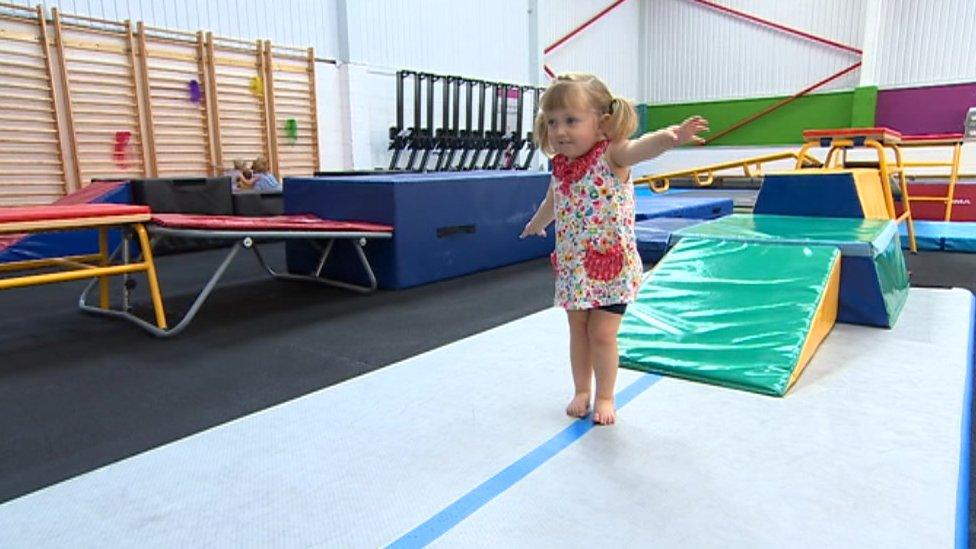Family's call for specialist genetics centre for Wales
- Published
Lisa Thomas said being able to access a centre in Wales would have given her reassurance when Tora was diagnosed
The family of a toddler from Cardiff who has a genetic condition are calling for a specialist centre to be set up in Wales.
Tora Betsi, two, has neurofibromatosis type 1, external (NF1), which can cause tumours, development and other heath problems.
There are two specialist centres in England for NF1 patients with complex issues but none in Wales.
The Welsh Government said it was difficult to provide services for all rare conditions.
Tora's mum Lisa Thomas, who is a GP, first raised concerns about her daughter's health when she was born with a brown spot, which looked like a birthmark, on her body.
She told the Newyddion 9 programme her daughter now had 15 spots, her head is also larger than other children's, she is shorter than average and is unsteady on her feet.
NF1 can also cause tumours behind the eye, high blood pressure and patients are more likely to develop cancers such as leukaemia.
There is no cure for the condition and no way of knowing how it will affect Tora in future.
Ms Thomas said the only thing the family can do is to make sure Tora eats well and exercises regularly to stay healthy.

One in every 2,500 babies are born with NF1 and there are currently about 1,200 people in Wales living with it.
There are two specialist centres in Manchester and London, which offer advice and care, but patients in Wales must make a funding request to their health board to be seen there.
Ms Thomas said if Tora needed specialist care in future, she would like to see a centre in Wales.
Prof Gareth Evans, who works at the Manchester unit, agreed a specialist centre in Wales would be helpful.
But he said there were not enough specialists or enough complex NF1 patients living in Wales.
A Welsh Government spokesperson said: "It is difficult for any individual country to provide services for all rare conditions where there may be very small numbers of people affected.
"In some cases, people will need to travel to other centres in the UK for expert care and support."
- Published2 December 2010